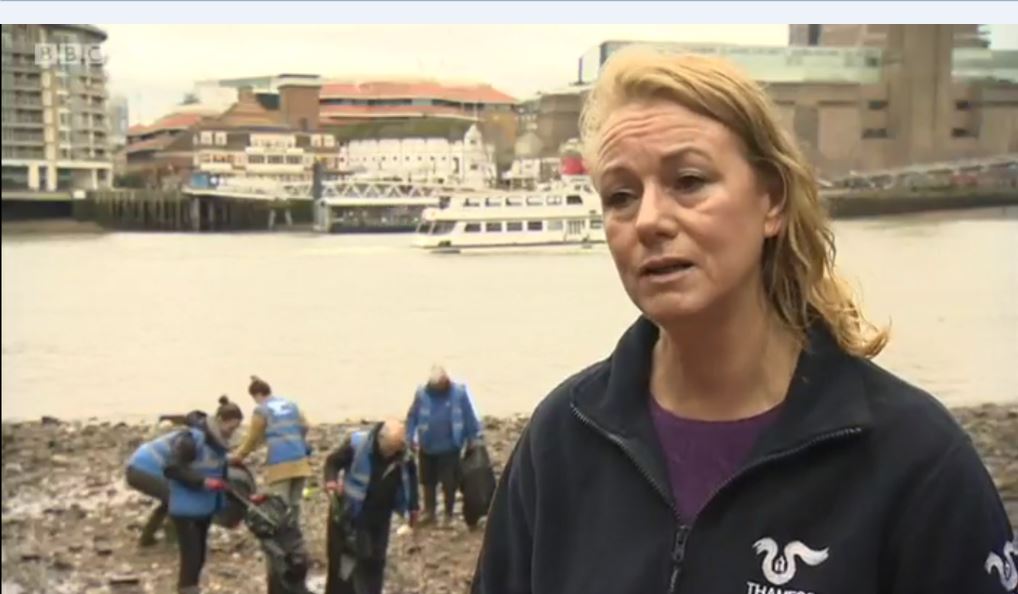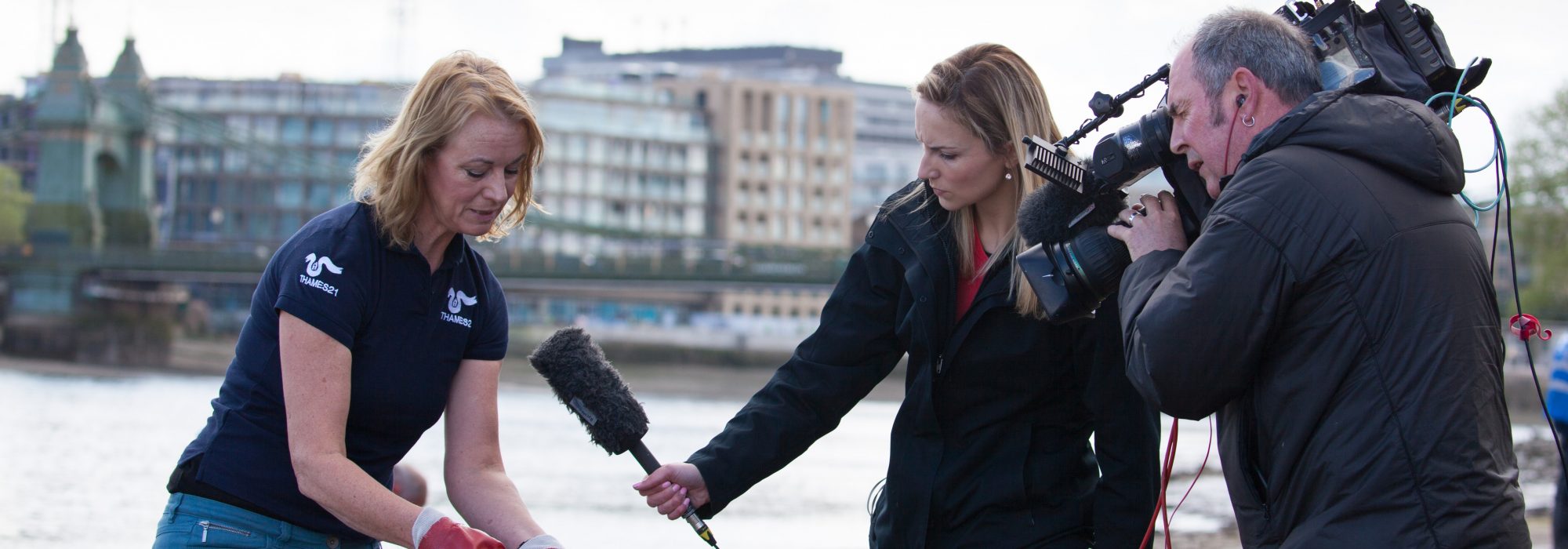Thames21 data features on London TV as London Assembly investigates impact of plastic bottles

This Wednesday was an even busier one than usual for Thames21. We were interviewed by both London Live and BBC London about the huge problem of plastic in the river Thames, in particular our response to the London Assembly’s Environment Committee investigation into the impact of plastic bottles on the environment.
The Committee referenced our shocking Thames River Watch data which found 2,500 plastic bottles on the foreshore in just one day, and is investigating how people can be encouraged to recycle more of their plastic single-use water bottles, and whether a bottle tax is needed.
In response, Debbie Leach, Chief Executive of Thames21, said: “We’re pleased that the Mayor’s Environment Committee is using Thames River Watch citizen science research, carried out by ordinary Londoners, to help identify solutions. Thames21, along with others, is calling for a bottle deposit scheme to reduce the huge amount of plastic entering the Thames and London’s other rivers.
“Meanwhile, we would love the Mayor of London to get behind the #OneLess campaign to phase out single-use plastic water bottles in the capital. If Delhi can ban disposable plastic, then why can’t London act on single-use water bottles?”
The Thames River Watch programme’s data is becoming increasingly relevant as the focus on plastic intensifies in the capital. Its programme coordinator, AJ McConville, spoke to London Live about the Thames River Watch programme, which trains ordinary Londoners as citizen scientists, analysing water quality and litter in their river. Sign up to our citizen science training to play YOUR part in helping to create our data.
Watch AJ explain the Thames River Watch programme
Thames21 is extremely grateful to our Leading a Waterway Clean Up and Thames River Watch trainees who participated in the filming.
Background:
